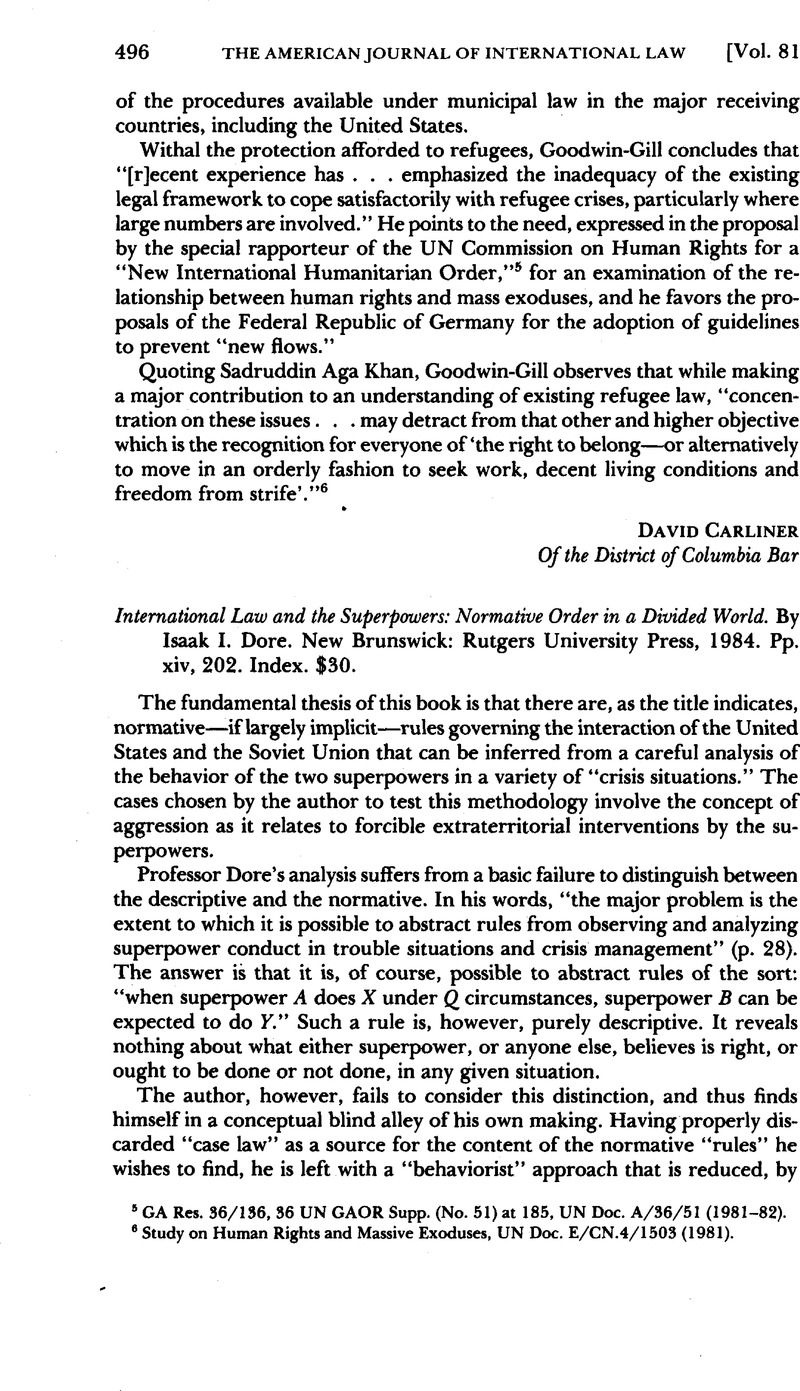No CrossRef data available.
Published online by Cambridge University Press: 27 February 2017

1 As a statement of history, this proposition is self-evident, as the superpowers have not gone to war; as a prediction, it is equivalent to saying that there will never be a war between the superpowers, obviously an overbroad and unsupportable assertion.
2 For an excellent explanation of the distinction between normative and descriptive “rules” in a legal context, see Hart, H. L. A., The Concept of Law 82–83 (1961)Google Scholar.
3 The Conference on Security and Co-operation in Europe: Final Act, 73 Dep’t St. Bull. 323 (1975), 14 ILM 1292 (1975), which is sometimes cited as codifying such a rule, is considerably more limited in scope than Dore’s posited norm and is, in any event, by its own terms not legally binding.
4 How, for instance, would Dore’s “bloc” approach apply to the current situation in Nicaragua? Is that country a wayward member of the U.S. “bloc” in which the Soviets have improperly interfered, thus giving the United States the “right” to take countermeasures? Or is it now a new member of the Soviet “bloc” in which any U.S. interference will be viewed as improper?
5 An excellent description of such internal norms in the Soviet case is found in Adomeit, H., Soviet Risk-Taking and Crisis Behavior 317–25 (1982)Google Scholar.
6 See Tunkin, G., Theory of International Law 35–48 (Butler, W. trans. 1974)Google Scholar.
7 See Kennedy, R., Thirteen Days 35–36 (1969)Google Scholar.
8 Indeed, U.S. intelligence reports at the time indicated that the Soviets were not even permitting any Cubans to enter the missile bases. Id. at 58.
9 66 Dep’t St. Bull. 898 (1972).
10 June 22, 1973, 24 UST 1478, TIAS No. 7654.